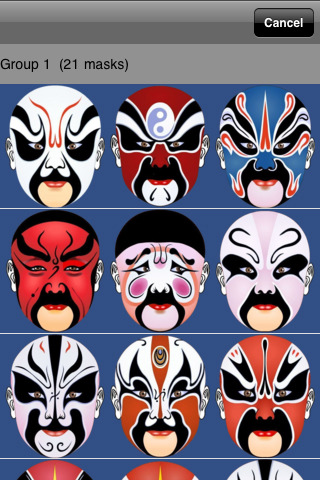

It had now become an amalgamation of many art forms including, dance, music, acting, make-up design, and costumes. Throughout the years from the Yuan dynasty until the Qing dynasty and even after the establishment of the Republic of China, Xiqu continued to evolve. As such even the commoners began to understand and enjoy Xiqu. During the Yuan dynasty, performers singing or speaking in the Chinese vernacular tongues became more popular.

Given that the opera was in classical Chinese, it was initially only performed for the emperor’s entertainment and the royal court. This was around the time the earliest known Chinese opera troupe. The dancing singing woman was a story of a woman beaten by her alcoholic husband.īy the Tang dynasty, these dramas became more complex with more dramatic twists and now involving at least four performers.

Other song and dance dramas at the time included Botou, the story of a grieving son who sought to avenge his father’s death by seeking the tiger that killed him. In the Northern Qi dynasty for example the song and dance dram included masked dance and was called the King of Lanling, performed in honor of Gao Changgong who went to battle wearing a mask. During the six dynasties, more various songs and dances came up. It was a simple comic drama involving only two performers, the corrupt officer Canjun and the jester who ridiculed him called Green Hawk. The earliest form of Xiqu was Canjun opera. It however also carried Chinese culture and traditions since the performances were derived from Chinese legends and folklore. For the most part, Chinese Opera was performed for entertainment purposes. What started as a simple song and dance performance has slowly evolved. We will also share with you the different types and how Chinese opera and how it differentiates from western opera. To help you better understand Chinese opera, this post will cover, what its purpose is and what is involved in the performance. By the Yuan dynasty, Xiqu had become a traditional art form for court officials and emperors and in the Qing dynasty, it became fashionable even to the ordinary people.Įven today, Chinese opera is considered a national essence and an important part of Chinese culture and tradition. Performers who attended the school were referred to as the disciples of the Pear Garden. An opera school by the poetic name Liyuan which translates to Pear Garden was opened during the Tang dynasty by emperor Taizong.

The roots of this form of musical theatre can be traced back to the earlier periods of Chinese history. Known as Xiqu in Chinese, this form of art is considered one of the world’s three oldest dramatic art forms. Even today, foreigners visiting China, don’t fail to attend a performance, especially opera lovers. I do sincerely hope it will stand the test of time for the next generations & generations to come to experience these traditional art performances in the future.The Chinese Opera is considered an ancient art form with a charm that’s endured all these years. For example, they’re changing the scripts to keep up with the times. More & more local photographers are documenting & sharing what they captured to keep the presence alive.įrom what I’ve seen, are some Chinese Opera Troupes are reinventing themselves to keep up with the modern time. It’s good to know there’s a group of younger generation are coming together to learn & perform this art form. However it will continue to stay so long as the new generation embraces & supports it. The future is uncertain despite being a disappearing art form in Singapore. What, in your opinion, does the future hold for ancient art forms like the Chinese opera? A picture ain’t worth anything if you don’t bother to find out the story behind it.ģ. hang around, have a chat & be their friend. It makes you feel like you are part of the family. Occasionally they invite me to have meals with them. After a while it’s only natural that a relationship & friendship is build. Most of the performers are used to photographers coming to document them. How did the actors react when you wanted to take photos of them? Sometimes I just spend time watching them, chatting, laughing & doing their own things, be it smoking, reading newspaper while waiting for their turns etc.Ģ. I also like to observe the interaction between the performers, there’s something about it that draws me. What I like about it is to see the transformation of painting their faces at the backstage simply because Chinese opera makeup is particularly fascinating and rich in meaning. It was only couple of years ago i started to rekindle my childhood experience by visiting them again with fellow local street togs. Chinese Street Opera has been around for ages. I discovered when I was a kid living in a Kampong (village) in Singapore. How did you first discover the Chinese opera?


 0 kommentar(er)
0 kommentar(er)
